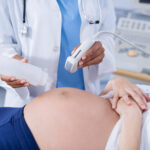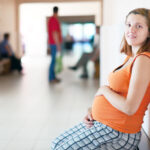Pregnancy is a time to heal the body in a way that women never even considered, because it is not just about her, but also also the growing life inside her. But we all know how the rain of suggestion started—especially when a woman is in her first trimester. Everyone’s body is different, so putting someone else’s experience onto yourself is not the right solution. Instead, it is better to talk to an expert to know what is better for you and your baby.
Till then, this article will help you to know what to avoid during the first trimester. Let’s start with the major nutrients list.
Major Nutrients in the First Trimester
- Folic Acid (600 µg/day): Prevents neural tube defects. Also found in leafy greens, fortified cereals for breakfast, and lentils.
- Iron (27 mg/day): Prevents anemia and delivers oxygen. For better absorption, consider taking it with a source of vitamin C.
- Calcium (1,000 mg/day): For the baby’s bone development.
- Vitamin D (15 µg/day): Supports bone development and the immune system.
- Omega-3s (DHA): For brain and eye development. In flaxseeds, walnuts, and low-mercury fish.
Tip: Take a prenatal vitamin daily to ensure you’re filling your nutritional gaps. And consult with an expert to know the exact quantity.
Let’s know some of the facts:
As per the study, one out of 10 pregnant women usually skips meals due to fatigue and nausea, and this impacts the health of the baby as well as the mother’s.
Iron deficiency in women during the first trimester leads to low birth weight, impaired brain development, reduced oxygen supply to the fetus, and preterm delivery.
According to the CDC, folic acid aids in reducing neural tube defects by 70%.
The First Trimester: Why Nutrition Matters Most
The first 12 weeks are the most crucial weeks for fetal development, like when the brain, spine, and organs start to form. It is also when you must feel more tired and queasy and also develop an aversion to food.
Rather than focusing on eating more, it is better to pay attention to nutritional value and its density. This is the stage when the fetus is more susceptible to toxins, birth defects, and miscarriages. As per the studies, 80% of the miscarriages happen in the first trimester because of the fetus’s development disruption due to genetic, age, or nutritional factors.
Foods to avoid
During the early phase of pregnancy, the immune system is suppressed, which increases the chances of foodborne illness or infections. Here is what to steer clear of:
– High-mercury fish:
Sharks, swordfish, king mackerel, marlin, orange roughy, etc., contain high amounts of mercury, and this can impact the kidneys, immune system, and nervous system. Also, it can cause serious issues with fetal development.
– Mung beans or raw sprouts:
These are rich in bacterial contamination like E. coli, Salmonella, and Listeria. As women’s immune systems are already weaker than usual, raw sprouts can cause issues like stomach cramps, vomiting, and diarrhea, which can further lead to complications from foodborne illness.
– Uncooked or raw Eggs
Although eggs are rich in essential nutrients like iron, protein, folate, and choline, they can become an issue for pregnant women. Raw eggs contain Salmonella bacteria, which can cause food poisoning and also cause severe issues due to a weakened immune system.
– Avoid drinking herbal tea and alcohol.
Not all teas are safer when it comes to a mom-to-be. We grew up knowing that herbal teas are good for health, but apart from the beneficial herbs like dried flowers, spices, or fruits, other compounds like fennel, fenugreek, vervain, borage, pennyroyal, etc., are harmful, which can lead the case towards miscarriage. Some teas increase the risk of menstrual bleeding, and drinking them in the first trimester can impact you and your baby.
Moreover, no amount of alcohol is safe for pregnant women, because it includes toxins and chemicals that lead to a higher risk of miscarriage or stillbirth.
– Avoid caffeine or limit it.
Coffee contains a higher amount of caffeine, and during the pregnancy, its clearance from the blood flow of the mother slows the blood flow significantly, according to WHO. It Some studies even indicated that excess intake is associated with risks like growth restriction, stillbirth, preterm birth, or reduced birth weight.
Also, caffeine can stimulate the production of acid and irritate the esophagus, and this can increase the risk of heartburn or acid reflux.
– Avoid unpasteurized food
Avoid unpasteurized food while pregnant to prevent foodborne illnesses. Low-fat dairy products like skim milk, mozzarella cheese, and cottage cheese are safe, but ensure they are made from pasteurized milk. Steer clear of soft cheeses like feta and blue cheese unless it is written specifically on the package that they are pasteurized. Unpasteurized milk harbors toxic bacteria like Listeria, which is very harmful to the mother and baby. The same goes for unpasteurized cider or juices, which could lead to infection.
Having pasteurized products is a simple but essential way of protecting pregnancy health. Always check labels before utilizing dairy or beverages in an effort to stay safe.
Conclusion
What a mother eats during the first trimester matters the most. Her health and the baby’s growth totally depend on that. For all the mothers, it is really important to get your diet on track. Furthermore, it is best to talk to the expert before finalizing your diet. They can add nutrition and a good portion of much-needed components, which further help in the overall growth of the fetus.
Apart from that, Cradle Children Hospital is always available for you. Feel free to contact us and ensure the beautiful growth of the new life.
FAQ’s
Yes, because the development of the baby starts from the first phase, and the nutrition provided by the mother helps in delivering a healthy baby.
Slight weight loss is normal because you might avoid consuming food due to hormonal fluctuation. But if the weight is consistently reducing, then you should consult with a healthcare professional.
If you are confused about the meals, make sure to consult with a gynecologist and pediatrician.





